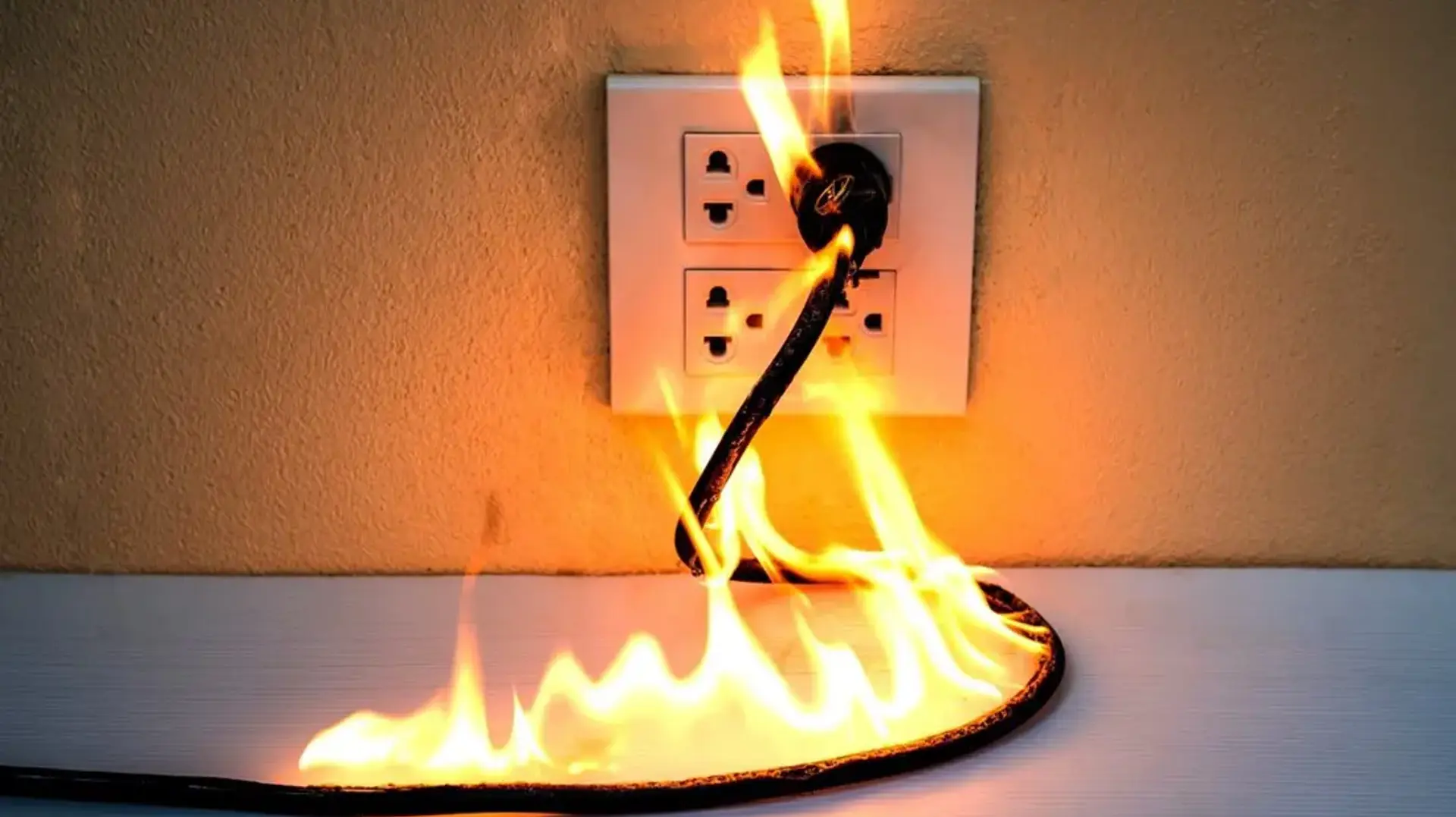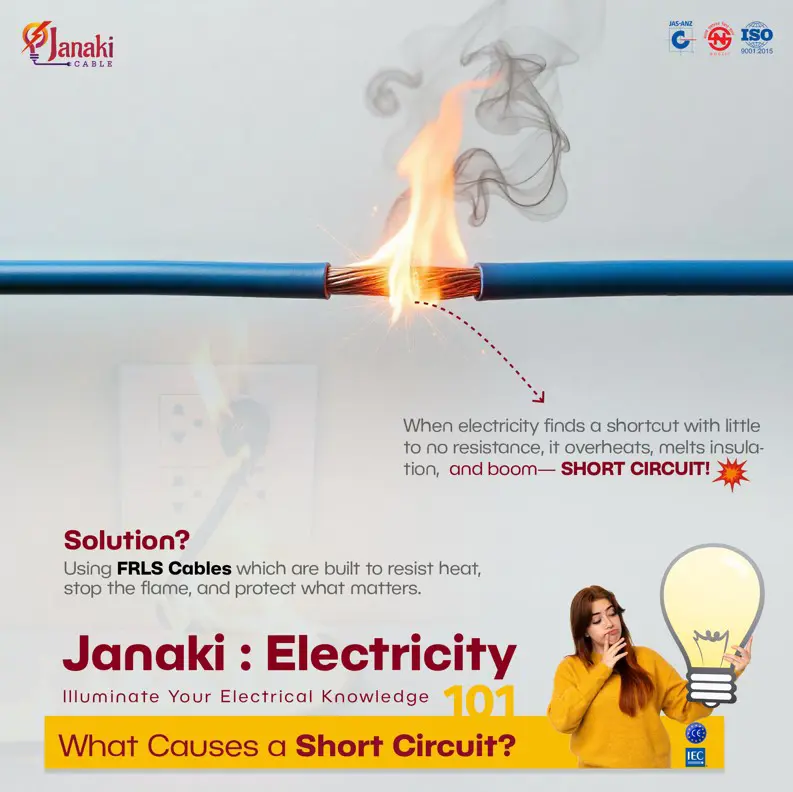- +977-9817826183
- info@janakicable.com
Wire on Fire? Learn How FRLS Cables Keep Your Home Safe

Janaki Electricity 101 : What Causes a Short Circuit and How to Prevent It
Short Circuits: A Hidden Danger in Every Home
Short circuits can happen in the blink of an eye—damaged wires, overloaded systems, or poor insulation can cause electricity to take a shortcut, leading to overheating, sparks, and sometimes even fire. In homes and workplaces where safety is non-negotiable, prevention is the only cure.
What Causes a Short Circuit?
A short circuit occurs when electrical current flows along an unintended path with little or no resistance. This sudden surge can damage devices, melt wires, or in worst cases, ignite a fire. Common causes include:
Damaged or exposed wires
Loose connections
Faulty appliances
Water contact
Overloaded circuits

Why Fire-Retardant Low Smoke (FRLS) Cables Matter
Most electrical fires start small—until they find fuel. Traditional cables can act like a fuse, spreading fire rapidly through insulation and generating thick, toxic smoke. FRLS cables are designed to combat that.
💡 The Janaki Solution
Janaki FRLS Cables are engineered to prevent the spread of fire and reduce smoke emission during electrical faults. Here’s how they protect your space:
Smart Insulation: Minimizes short-circuit risk
Flame Retardant: Stops fire from spreading
Low Smoke Emission: Improves visibility and reduces toxic gas in case of fire
High Heat Resistance: Performs safely under stress
Whether it's your home, office, or industrial setup, Janaki Cables help you stay safe, always.
Choose Safety. Choose Janaki.
At Janaki Cable Industry, we don’t just make wires—we engineer peace of mind. When safety matters, go with cables that are tested, trusted, and built for protection.
🧠 Janaki 101: Illuminate Your Electrical Knowledge
We’re on a mission to spread awareness about electrical safety across Nepal. Stay tuned every month as we answer your most common (and uncommon) questions about wires, safety, and smart installations.









